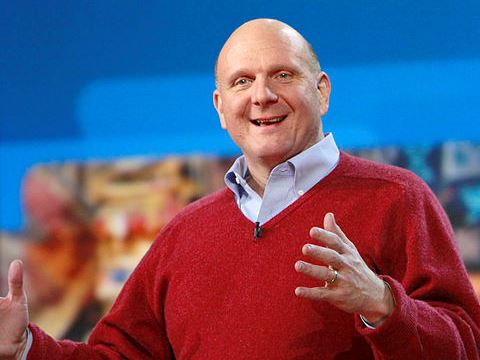Technology
Gates and Ballmer on Microsoft Board Means No CEO Independence
Published:
Bill Gates earned his position on Microsoft Corp.’s (NASDAQ: MSFT) board and as its chairman because of his role as founder and long-time chief executive officer. Despite the outcry among investors that he will dominate all future strategic decisions, he could very well remain on the board until the end of his life. Steve Ballmer is another matter. He is a large shareholder and the current CEO. But if he stays on the Microsoft board, then two men, not one, will overshadow a new CEO. Ballmer can do just that. He and Gates are board nominees, according to Microsoft’s new proxy.
Many CEOs remain on their boards for a period of transition, in essence to help a new CEO along. Ballmer was never one to grant his executives much independence. He often let go those who did not agree with him. Additionally, he fumbled Microsoft’s chances to move from personal computers to other devices. This kind of failure is rarely rewarded with a board seat. However, Ballmer has been Gates’s number two, and the argument could be made that he held that position even as CEO.
A company has to list the qualifications of each board nominee. Aside from Ballmer’s 3.9% ownership of Microsoft stock, which is not mentioned, his qualifications are these:
Mr. Ballmer has deep knowledge of the Company’s history, strategies, technologies, and culture. Mr. Ballmer has been the driving force behind the strategies and operational excellence that resulted in revenue tripling and operating income more than doubling since he became Chief Executive Officer in 2000. His leadership of diverse business units and functions before becoming Chief Executive Officer gives Mr. Ballmer powerful insight into the product development, marketing, finance, and operations aspects of the Company. During his tenure Mr. Ballmer has demonstrated the value of diversification of the company’s business lines as he grew thirteen additional businesses to more than $1 billion in revenues. He also led our expansion globally with international revenues growing from 32% to 47% of total annual revenues from 2000 to the present.
The proxy glosses over the fact that Ballmer failed almost totally in the “powerful insight into the product development, marketing, finance, and operations aspects of the Company” measure. Or, at the very least, most of those insights turned out to be wrong. Revenue may have increased on his watch, but not enough to stop the cratering of Microsoft shares since he became CEO, particularly when that performance is measured against the Nasdaq. Microsoft’s share price is off 40% since the start of 2000, which also happened to be the peak of the Internet stock market bubble. The Nasdaq index is flat during the same time.
Ballmer is on the Microsoft ballot because he can be. Gates is his critical ally. The balance of the board, often considered people who would not dare defy the founder, have gone along with keeping Ballmer in place. If there is any evidence necessary that a new CEO will have little independence, it is Ballmer’s continuing presence on the board and Gates’s support of it.
Thank you for reading! Have some feedback for us?
Contact the 24/7 Wall St. editorial team.